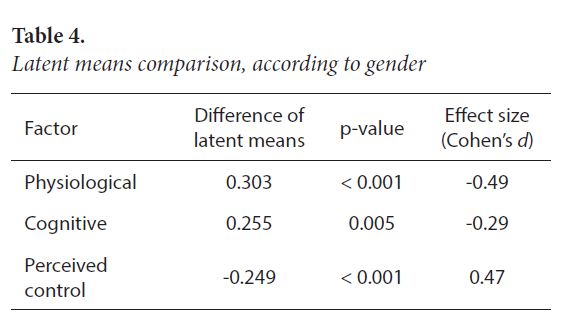Psychometric Properties of the Three-Dimensional Anxiety Scale for Sport (ETApE) through CFA and IRT Approaches
Keywords:
Anxiety, Sport, Validity, Reliability, InvarianceAbstract
The present study aimed to improve and examine the reliability, evidence regarding internal structure and invariance of the ETApE, an anxiety trait scale for sport. The study sample was formed by 500 athletes from the south of Brazil, being 64% males, from different sports and competitive levels, ranging from international to local. To examine the psychometric properties of the measurement model, a confirmatory factor analysis (CFA) with maximum likelihood method was conducted and the composite reliability was assessed. Item parameters were analysed in light of the Item Response Theory (IRT). Moreover, the model’s invariance was tested and a latent means comparison according to gender was performed. The instrument presented good psychometric qualities that point to its validity regarding internal structure. Good indicators of reliability and factorial invariance were also achieved. A statistically significant difference was found in the three dimensions of the instrument according to gender. Women scored higher in cognitive and physiological anxiety and had lower score in the perceived control dimension.

